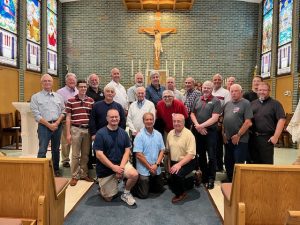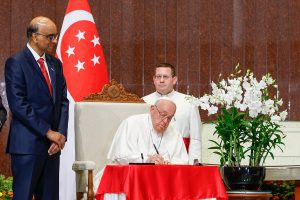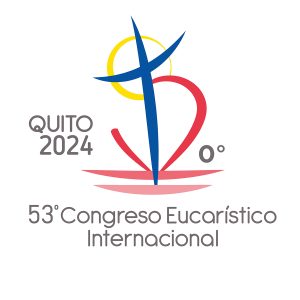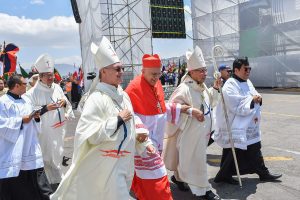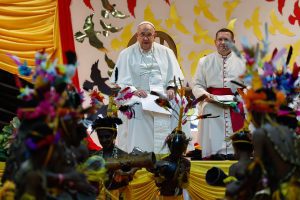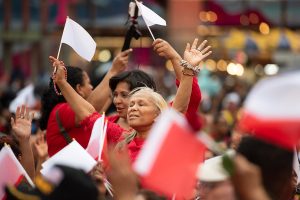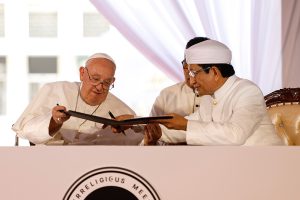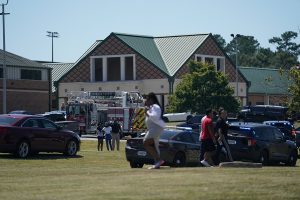WHITE HAVEN – When the faithful of Saint Patrick Parish were asked to describe their church – the word “community” came up frequently.
“We have a tremendous sense of community,” parishioner Audrey Wood-Karnatski said.
“We come together to do things,” parishioner Ed Gower added. “We’re a welcoming community.”
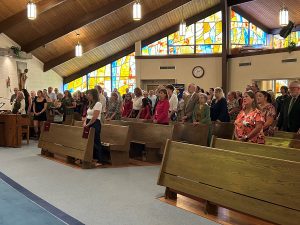
For 150 years, the Luzerne County parish which is home to roughly 300 parishioners has been growing that sense of “community” and on Aug. 18, 2024, many gathered to celebrate.
The Most Rev. Joseph C. Bambera, Bishop of Scranton, was principal celebrant and homilist for a Mass of Thanksgiving to mark the parish milestone of a century and a half of unwavering faith and devotion.
Several other priests – including Father Michael Kloton, who currently serves as Parish Administrator, and Father Peter J. O’Rourke, who currently serves as Sacramental Minister, concelebrated the liturgy.
“We’re all a community here and I think that is exactly what makes me so proud of being here,” Father O’Rourke explained.
Parishioner Edward J. Price has belonged to Saint Patrick Parish for 70 years and has been inspired by all the work that is done.
“The ministry in the church, the outreach that we give to the people outside the church, the people that volunteer to help run the church and go out to the people that can’t get here themselves are all very rewarding,” he explained.
As the parish looks to the future, Price is hopeful that even more parishioners will discover their faith community.
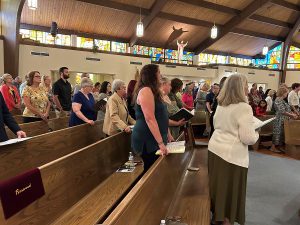
“With the closing of the White Haven Center there are rumors that something will be going in there, maybe townhouses or apartments, something that will make the community bigger and hopefully we will get more people if that happens,” Price added. “But we’re actually getting more people from outside the area, Weatherly, Freeland, Hazleton and even Mountain Top, there are more people coming all the time. We hope that continues.”
Saint Patrick Parish was incorporated in 1874. The first Catholic settlers in the White Haven area were Francis Lynch and Patrick Dolan and many of the first parishioners that followed were railroad workers.
Over the years, the parish experienced many changes but always focused on ecumenical projects and service-oriented opportunities.
“We’re the largest church in White Haven and because of that some of the other congregations look to us to take the lead,” Gower said. “We share in things like Vacation Bible School, the food pantry, the community lunch program, among many other things that happen in town. We do it well together.”
Wood-Karnatski grew up across the street from Saint Patrick Parish. While her family veered away from the church for a time, she has found her way back and is responsible for leading the parish choir.
“Any Sunday, you can come in and everyone is grateful to see you,” she said.


